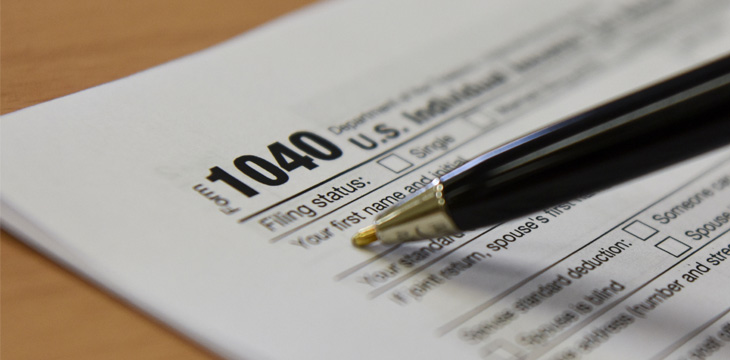|
Getting your Trinity Audio player ready...
|
Many cryptocurrency investors in the United States are still seeking clarity over what their tax obligations should be, as U.S. law around it can be at times murky. Sensing an opportunity to get at least a few questions answered, eight members of Congress have written to the Internal Revenue Service (IRS) to ask about air dropped tokens and forks.
In their December 20 letter, the congressmen asked Commissioner Charles Rettig to clear up a few questions about these specific cryptocurrency taxation questions, and urged the department to provide some safe harbor to Americans that might be taxed. They note that while the IRS has offered guidance, there still remains a lack of answers for forks and airdrops, and outline how they are different than a typical standard of “dominion and control.” They ask the following three questions:
- Does the IRS intend to clarify its airdrop and fork hypotheticals to better match the actual nature of these events within the cryptocurrency ecosystem? When does the IRS anticipate issuing that clarification?
- Does the IRS intend to clarify its standard for finding dominion and control over forked assets wherein some level of knowledge and actual affirmative steps taken are necessary to find that the taxpayer has dominion and control?
- Does the IRS intend to apply the current guidance or any future guidance retroactively, or will the IRS issue proposed guidance that is subject to notice and comment?
Reps. Tom Emmer, Bill Foster, David Schweikert, Darren Soto, Lance Gooden, French Hill, Matt Gaetz and Warren Davidson went on to ask that the IRS take it easy on Americans until these questions are answered. “Until there is clear guidance that is prospective in nature, we urge the IRS to use its authority for penalty relief in those instances in which tax payers made a good faith effort to comply,” they wrote.
Coin Center, which helped the representatives draft the letter, was happy to see congressional action on this important point for American crypto investors. “Getting cryptocurrency tax policy right is a top priority for us and we are pleased to see Congress stepping in on this critical issue for its users,” Neeral Agrawal, Coin Center’s director of communications, noted in a blog post.
Previously, the IRS has noted that in the case of hard forks, if no new crypto is received, then it’s just not a situation that can be taxed.
Experts have also previously noted that any gains that occurred before 2018 can’t be deferred, possibly increasing the tax obligations for citizens. They’ve also noted that the continued problem of a lack of crypto being claimed on tax forms is simply due to the IRS not making their obligations clear enough.
Recommended for you
British lawmakers of the parliamentary national security committee have called for a temporary ban on political parties receiving donations in
Circle (NASDAQ: CRCL) soared in 2025 thanks to U.S. ‘regulatory clarity,’ but can this momentum survive a ban on crypto

 02-26-2026
02-26-2026 




